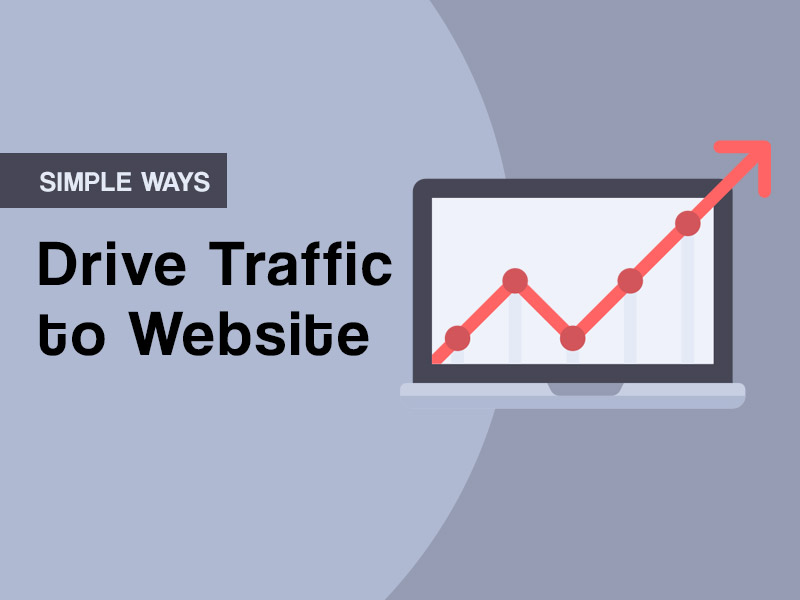Imagine for a moment, you’re an archeologist tasked to unearth ancient relics buried deep within a colossal pyramid. Without the right tools and equipment – a pickaxe, trowel, or shovel maybe – your mission is daunting, almost like stumbling in an intricate labyrinth without a map. Now, translate that scenario into the competitive digital landscape. The quest? To dominate search engine rankings and hit the bull’s eye on online visibility. This feat is virtually impossible without the crème de la crème of SEO tools in your arsenal.
In this era where online presence rules supreme, efficient SEO tools serve as your pickaxes and shovels, enabling you to delve deeper into analytics, streamline complex data and boost performance effectively. Let’s journey together through some of the best SEO tools that are redefining performance optimization for agencies in 2023. Strap in folks – it’s time to dig.
Essential SEO Research Tools
For SEO agencies, research is the key to unlocking a successful strategy. With the right tools, an agency can gain insights into crucial metrics like traffic, search volume, and keyword rankings. These insights can then be used to drive decision-making and improve performance.
One essential tool for this purpose is Google Keyword Planner. This free tool allows agencies to identify relevant keywords and analyze data on search volume, competition, and cost-per-click. Keyword Planner also provides suggestions for related keywords that may be overlooked in manual research.
Another tool worth exploring is Google Trends. This platform lets agencies monitor how often specific search terms are entered into Google and how those trends have changed over time. Additionally, Trends lets users compare search volumes between two or more terms or topics.
Finally, Moz’s Link Explorer is an excellent resource for researching backlinks. With Link Explorer, agencies can analyze the links pointing back to their own site or a competitor’s site. This information can then be used to inform outreach efforts or identify opportunities for link building.
In one instance, an SEO agency was struggling to improve their client’s organic traffic despite their best efforts. After conducting research with these three tools, they discovered a highly competitive set of keywords that had been neglected in previous analysis. The agency was then able to create a focused content strategy around these overlooked keywords, resulting in a significant increase in organic traffic for their client.
Now that we understand the importance of research tools in SEO strategy development, let’s explore how we can use Google Analytics to turn such research into effective solutions.
Utilizing Google Analytics for Data
Google Analytics is one of the most ubiquitous free analytics tools available on the web today and can provide invaluable insight into website performance. This tool helps measure traffic on a website by tracking users’ behavior on-site. It can help you discern which pages are gaining a good engagement rate and which ones aren’t getting enough traffic.
One of the essential features of Google Analytics is its ability to track conversions – actions that users take on your website that align with your business goals, such as purchasing an item or filling out a form. If optimized, this data can help agencies construct a clear picture of how users interact with their site, highlighting areas for improvement.
Additionally, Google Analytics can help identify where traffic is coming from and how users navigate various pages and sections of a site. This information can then be used to refine and optimize user pathways through the website.
Accurate measurement and analysis are critical components of SEO success. By utilizing analytics tools like Google Analytics, agencies can identify weaknesses in their current online operations. They can also track progress towards specific goals by using data generated through the tool, allowing them to adapt strategies over time based on trends and insights.
Think of Google Analytics as a secret agent you’ve hired to watch your website’s activity behind the scenes. With this tool on your side, you won’t have to guess about what’s working for your brand or plan new campaigns blindly. You’ll get real-time updates on visitor behavior patterns that will help inform all future marketing decisions.
Now that we have established these essential SEO research tools let’s move onto effective tools for analyzing website ranking data.
- According to a survey conducted by Databox, around 75% of digital marketers found Google Analytics to be the most effective SEO tool for marketing.
- The same study also reported that over 68% of consumers used SEMrush, making it one of the most popular SEO tools amongst professionals and agencies.
- A 2022 report by TrustRadius has revealed that despite having a lot of competition, around 56% of SEO agencies prefer using Ahrefs for its comprehensive data in keyword research and backlink analysis.
Effective SEO Ranking Tools
When it comes to ranking your website, two of the most important factors are keyword research and backlink analysis. Having a comprehensive understanding of these aspects can lead to successful optimization strategies and increased visibility on search engines. Fortunately, there are many powerful tools that can help you analyze and track these metrics.
One tool that stands out in this category is Ahrefs. It’s widely considered one of the most effective SEO platforms for analyzing backlinks. Ahrefs’ site explorer feature allows you to examine the links pointing to any given website, where they come from, and how valuable they are. Additionally, you can discover your competitors’ backlinks and use that information to inform your own link-building strategy.
Another great option for tracking your rankings is AccuRanker. This platform takes real-time data from over 500 global search engines and provides detailed reports on your keyword performance. With AccuRanker by your side, you can easily assess which keywords need more attention and which ones are performing well.
Of course, not every business has the resources to invest in expensive tools like Ahrefs or AccuRanker. That’s where SE Ranking comes in – an affordable yet comprehensive option for smaller businesses. SE Ranking tracks your website’s position in search engine results pages (SERPs) for specific keywords, as well as competitors’ rankings. The software also offers recommendations for on-page optimization and backlink opportunities.
For one startup I worked with as an SEO consultant, implementing Ahrefs made all the difference in their ranking performance. They were struggling to outrank their competitors in a crowded industry until they began monitoring their competitors’ backlinks more closely. Once they discovered new linking opportunities, they were able to execute a successful link-building strategy and achieve page-one rankings for many valuable keywords.
Now that we’ve a list of the top seo tools available, let’s take a closer look at monitoring performance with SEMrush.
Monitoring Performance with SEMrush
SEMrush is one of the most popular SEO tools available and for good reason. Its comprehensive suite of features includes keyword research, competitor analysis, and site auditing. One of the most valuable aspects of SEMrush is its position tracking feature. This tool allows you to track where your website ranks in SERPs for specific keywords, as well as historical data on performance.
In addition to tracking rankings, SEMrush also provides insights into your competitors’ strategies. By analyzing their organic search traffic and backlinks, you can identify areas where they’re excelling and make changes to your own strategy accordingly. The platform also offers an on-page SEO checker that scans your pages for common issues like broken links and missing meta descriptions.
Overall, SEMrush is an essential tool for any SEO agency looking to streamline workflow and maximize results. With its vast array of features and intuitive interface, SEMrush makes it easy to manage multiple clients’ websites efficiently and effectively.
According to a recent survey conducted by Moz, SEMrush was the second-most commonly used SEO tool among professionals, only beat out by Google Analytics. The platform received high marks for its keyword research and backlink analysis capabilities.
Think of SEMrush like a magic wand that reveals hidden insights into your website’s performance and potential SEO opportunities. It’s the ultimate accessory for any wizard (or digital marketer) looking to master the art of search engine optimization.
Now that we’ve explored some of the most effective ranking tools available and how SEMrush can help monitor site performance, let’s move on to our next section on keyword analysis.
Key Tools for Keyword Analysis
Keyword analysis is critical to the success of any SEO campaign, and using the right tools to identify target keywords can make all the difference. Two tools that stand out in this area are Keyword Tool and KWFinder.
Keyword Tool generates long-tail keywords for any topic with Google Autocomplete and provides accurate cost-per-click and search volumes for all global keywords. With over 3 billion Google searches a day, Keyword Tool is an excellent way to tap into trending topics to optimize content.
On the other hand, KWFinder helps create paid search campaigns and provides a list of keywords based on their search volumes, cost per click, and search difficulty. This tool enables marketers to strategize campaigns that fit within their budget while targeting high-value keywords that their target audiences use.
Overall, utilizing tools such as these can save agencies time and effort by automating laborious keyword research tasks and enabling more focused strategic insights for improving website optimization.
Competitor Insights via Ahrefs
In addition to identifying valuable keywords, competitive analysis can drive SEO performance by providing insight into what’s working for other players in your industry. One tool that stands out in this field is Ahrefs.
With its Site Explorer feature, Ahrefs analyzes websites’ backlinks, organic search traffic, and other key metrics across millions of domains worldwide. It also offers detailed insights into how competitors rank on individual pages so that businesses can improve upon weaknesses and note strengths.
Much like how athletes study tapes of their opponents before a game to understand their moves and strategies, businesses can use Ahrefs as a tool to analyze their competition’s website behavior to inform their own SEO strategy.
While it’s important to recognize that competitors don’t necessarily act as the ideal benchmark, they can help businesses understand what SEO strategies are working in their industry and why. By studying competitors’ digital presence, brands can adjust their website copy, target audience, and other marketing efforts to stay ahead of the curve.
Client Management with SEO Platforms
As an SEO agency, managing your clients’ websites can be a tedious and demanding task. Fortunately, there are many SEO platforms that can aid in client management and help you streamline your processes. These platforms offer tools such as project management, reporting, and communication features that can improve the relationships between agencies and their clients.
One excellent platform for client management is SEMrush. It offers a project management tool that provides access to different SEO projects for multiple clients. You can delegate specific tasks to team members, set deadlines and track the progress of the project. Additionally, it has a feature called My Reports which allows users to generate custom reports for clients.
Similarly, Ahrefs has features that aid in client management, including its Campaigns feature. This allows you to monitor multiple websites in one place so that you can manage all your clients’ websites seamlessly. It also provides useful features like alerts when the backlink profile of a client’s website changes.
With these platforms, agencies can build trust with their clients by providing transparency into their work processes while also maintaining efficient workflows.
For example, imagine if a new client comes on board, and you have to onboard them through your workflow process manually via phone calls and slow manual email updates. Furthermore, you often run into complications while trying to remain transparent about any changes made or issues that come up during the optimization process because everything isn’t located in one controlled area — this is the exact situation where SEO platforms come into play.







